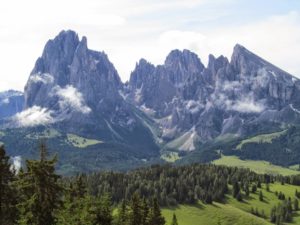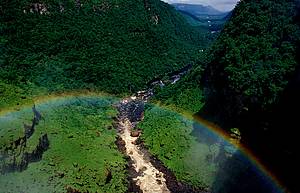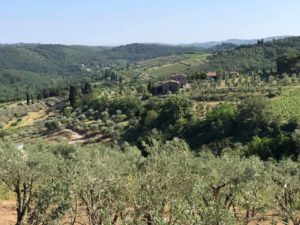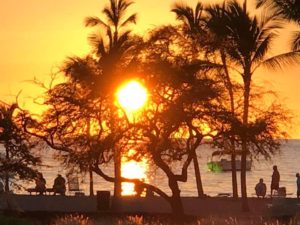Beyond the Storm, Eco-Friendly Dream Homes
“I don’t think I will ever miss the old home; it never protected us from floods and storms!” said Dadi Ibrahim, a widow. Her only association, she said, with her dilapidated hut is the “fond memories” of living there with her late husband.
The 65-year-old resident of Village Haji Jaffar Jamari, in Thatta district in Sindh province, is now the proud owner of a brand new two-room energy-efficient house, which will soon be awarded to her as one of the beneficiaries of a government housing project.
Ibrahim’s thatched house has been her home for as long as she can remember. Hers was one of 25 poorest households in her village chosen as beneficiaries for the People’s Housing Programme, dubbed ‘Benazir Model’, named after the late Prime Minister Benazir Bhutto. It was launched on May 1, 2009 to provide energy-efficient, low-cost and disaster-proof housing for the poor in Sindh province.
Like Ibrahim, Kazbano Fateh, also from Thatta, feels only a sense of relief now that she and her family will soon be abandoning their old house.
“There is nothing to reminisce or miss (about it),” said the 45-year-old mother of five. Certainly not the constant plastering of mud on the walls to close the fissures and cracks; getting soaked when rains pour or drying out the entire house after a storm. “We lived in much hardship,” she said. Now her children finally have a place they can truly call home, she enthused.
Ibrahim, Fateh and all other poor beneficiaries of the project were identified based on two main criteria — they belonged to the poorest of the poor and were most prone to disaster.
Based on the 2004 ‘State of the Environment and Development’ report of the non-government International Union for Conservation of Nature, over two-thirds of the households in rural Sindh are extremely “vulnerable” to natural disasters despite the province having the highest per capita income in Pakistan. Ibrahim remembers Thatta as a once prosperous district in the Indus Delta, located 98 kilometres from the southern port city of Karachi. But being prone to storms and cyclones and at constant risk of the worst form of sea intrusion, it has been plunged deeper into poverty.
Gone are the days when the historic Thatta — famous for its necropolis — enjoyed the bounties of farming, which many of the residents have been forced to abandon, having either migrated to urban centres, where they live in abject poverty, or turned to hard labour by working as daily wage earners.
According to the Pakistan Fisherfolk Forum, an NGO working for the rights of small-scale indigenous fisher communities in this country of about 180 million population, some 2.2 million acres of fertile land of the delta, of which Thatta is a part, have been submerged in sea water in the last two decades.
The housing programme that will see the construction of 500 units for the poor is being jointly undertaken by the provincial government and the United Nations Development Programme (UNDP), which was the first to use the innovative technology inherent to the project when it embarked on a similar undertaking, albeit on a much smaller scale, in Badin and Thatta between 2003 and 2004.
The project boasts the use of indigenous and eco-friendly technology and materials that can withstand the ravages of nature, the frequency and intensity of which is widely believed to be the results of climate change, the bane of modern society. The choice of both technology and building materials is also intended to provide sustainable energy solutions.
To continue this story by Zofeen Ebrahim of by IPS News, visit here: http://www.ipsnews.net/news.asp?idnews=48923
*This story is part of a series of features on sustainable development by IPS – Inter Press Service and IFEJ – International Federation of Environmental Journalists, for the Alliance of Communicators for Sustainable Development (www.complusalliance.org).








